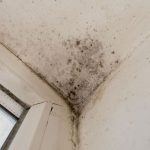At least two were killed and 11 wounded in an Israeli strike on central Beirut’s Bachoura neighborhood early on Thursday local time, the Lebanese Health Ministry said in a statement.
Israel’s recent military campaign in Lebanon has killed hundreds, wounded thousands and displaced over a million. Israel says it is targeting Iran-backed Hezbollah militants.
Hezbollah said its fighters were engaging Israeli forces inside Lebanon on Wednesday, reporting ground clashes for the first time since Israel began pushing into its northern neighbour in a campaign to hammer the Iran-backed armed group.
The Israeli military said regular infantry and armoured units were joining its ground operations in Lebanon, a day after Iran attacked Israel in a strike that raised fears the oil-producing Middle East could be engulfed in a wider conflict.
Eight Israeli soldiers were killed in combat in south Lebanon, the Israeli military said in a statement on Wednesday.
CBC foreign correspondent Chris Brown gets an inside look at some of the damage caused by Iran’s missile strike in Israel.
The military has said the ground incursion is largely aimed at destroying tunnels and other infrastructure on the border, and that there were no plans for a wider operation targeting Beirut or major cities in southern Lebanon.
Iran said on Wednesday its missile attack on Israel, its biggest military assault on the country, was over, barring further provocation, while Israel and the United States promised to hit back.
In the Israeli town of Hod Hasharon, northeast of Tel Aviv, Shmulik Succary walked a CBC News crew through his home.
One of the 200 Iranian missiles launched at Israel on Tuesday landed metres away from the 83-year-old’s home, blowing the windows out and giving him and his family a scare.
Succary said he and his family rushed to the bomb shelter at the bottom of the stairs but, even there, they could hear the sound of the missile hitting the ground nearby.
“The house was trembling,” he said. “The house was under a multitude of glass, pieces of glass … No doors … No windows.”
On Wednesday, Succary was still cleaning up the mess from the missile strike. He said he was angry at many things regarding the Iranian strikes and the upcoming one year anniversary of the Oct. 7 attack.
“There’s a certain tension of course. It’s a very big mess,” he said.
Speaking on the eve of Rosh Hashanah, the new year in Judaism, Succary said that what is supposed to be a happy holiday is now filled with mixed emotions.
“You can start a war, you know its beginning, you never know how it ends,” he said. “And that’s the problem.”
The United Nations said the violence has forced more than a million people in Lebanon out of their homes. Save The Children says that number includes around 350,000 children.
Fidel Saad, who works for Save the Children International in Beirut, says the organization has been supporting families with food security, mental health activities for children and other essential needs.
“The main message for the international community now is ceasefire … we need a ceasefire in both Lebanon and Gaza,” Saad told CBC News Network on Wednesday.
CBC’s Ellen Mauro breaks down why Iran fired roughly 200 ballistic missiles into Israel and the potential consequences for the Middle East.
Hezbollah said it was clashing with Israeli troops in the border town of Maroun el-Ras, and had destroyed three Israeli Merkava tanks there. The group also fired rockets into Israel.
The group’s media chief Mohammad Afif said those battles were only “the first round,” and that the group had enough fighters, weapons and ammunition to push back Israel.
In addition to strikes within Lebanon, Syrian state media reported Wednesday that an Israeli airstrike struck in the Mezzah suburb of Damascus, with at least three civilians killed.
Diplomatic push for parties to de-escalate
On Wednesday, the UN Security Council held an emergency meeting to address the Middle East conflict, where Secretary General Antonio Guterres said the “deadly cycle of tit-for-tat violence must stop.”
Guterres told the council he strongly condemned Iran’s attack on Israel. Earlier on Wednesday, Israel’s Foreign Minister Israel Katz said he was barring Guterres from entering the country because he had not done so.
Defence Minister Bill Blair says the uptake of commercial flights out of Lebanon by Canadians has been ‘steady.’ Ferial Elkadri, a Canadian in Lebanon who is planning to leave the country for Jordan with her family, says her husband and son are not Canadian, which may complicate her efforts to get them on the flight.
Meanwhile, Italy hosted a call of G7 leaders.
The leaders reiterated their “firm condemnation” of Iran’s attack on Israel.
“Obviously Israel has the right to defend itself against these attacks,” Canadian Prime Minister Justin Trudeau said to reporters in Ottawa after participating in the call. “At the same time, we have to do everything we can to avoid a wider war and protect civilians and get humanitarian aid to affected regions.”
Lebanon’s caretaker prime minister pleaded for a ceasefire.
“We don’t need more blood. We don’t need more destruction,” Nijab Mikati said in a briefing organized by the American Task Force for Lebanon, a U.S.-based lobby group.
Prime Minister Justin Trudeau, who spoke Wednesday to G7 leaders about the situation in the Middle East, called Iran a ‘terrorist regime’ and said their actions are putting the region at risk of wider war. ‘As an international community we have to continue to do everything we can to call for peace and stability.’
Strikes south of Beirut
Israel on Wednesday renewed its bombardment of Beirut’s southern suburbs, a Hezbollah stronghold, with at least a dozen airstrikes against what it said were targets belonging to the group.
Large plumes of smoke were seen rising from parts of the suburbs. Israel issued new evacuation orders for the area, which has largely emptied after days of heavy strikes.
Iran’s missile attack into Israel on Tuesday prompted some cheers in the streets of Beirut. The attack marks the latest escalation in the war between Iran and its proxy in Lebanon, Hezbollah.
Israel and Hezbollah have traded fire almost daily for almost a year, after the Palestinian militant group Hamas led a cross-border attack in Israel on Oct. 7, 2023, which killed 1,200 people, according to Israeli government tallies. The exchanges have seen thousands who live near both sides of the border flee their homes.
Nearly 1,900 people have been killed and more than 9,000 wounded in Lebanon since, most in the past two weeks, according to Lebanese government statistics. Israeli has recently killed several high-ranking Hezbollah officials, including its security general, Hassan Nasrallah.
Iran says its attack has ‘concluded’
Iran said Tuesday’s assault was solely aimed at Israeli military facilities. Iranian Foreign Minister Abbas Araqchi said in a post on X that “our action is concluded unless the Israeli regime decides to invite further retaliation.” Iran would offer a more powerful assault if that happened, he said.
Israeli Prime Minister Benjamin Netanyahu vowed on Tuesday that Iran “will pay” for the barrage. The U.S. Pentagon said Iran’s Tuesday airstrikes were about twice the size of its April assault on Israel.
Israeli officials said Wednesday the U.S., France, Britain and Jordan aided in its air defence. Minister of National Defence Bill Blair said Canada was not involved.
Experts who spoke to Reuters say Iran’s Fattah-1 and Kheybarshekan missiles appear to have been utilized on Tuesday. Both have a reported range of about 1,400 kilometres.
Iran has said both missiles use solid fuel, meaning they can be launched with little warning.
Sameh Khadr Hassan Al-Asali, 38, was the only known fatality of Iran’s attack and was buried on Wednesday. The Palestinian had been staying in a security forces compound in the Israeli-occupied West Bank when he was killed by falling missile debris.
U.S. President Joe Biden condemned Iran’s attacks today, saying his national security team is in constant contact with Israeli counterparts. Meanwhile, Iran’s armed forces are warning of a ‘strong attack’ if Israel’s allies intervene. Two Iran experts discuss whether that means a wider war is inevitable.
Evacuation plans going into effect
Fears of a wider conflict have seen several countries ramp contingency plans to evacuate citizens from Lebanon, though none has launched a large-scale military evacuation yet.
Foreign Affairs Minister Mélanie Joly on Wednesday again urged Canadians in Lebanon to seek commercial flights out of the country.
Global Affairs Canada officials say the department has three more flights out of Lebanon booked for Thursday and Friday, bringing the total number of seats made available for Canadians wanting to leave to about 1,000 after two previous flights departed Beirut.
Joly said Tuesday about 4,000 have filled out an intake form on how to obtain a GAC commercial airline booking, and that about 1,700 have been contacted thus far in response.












